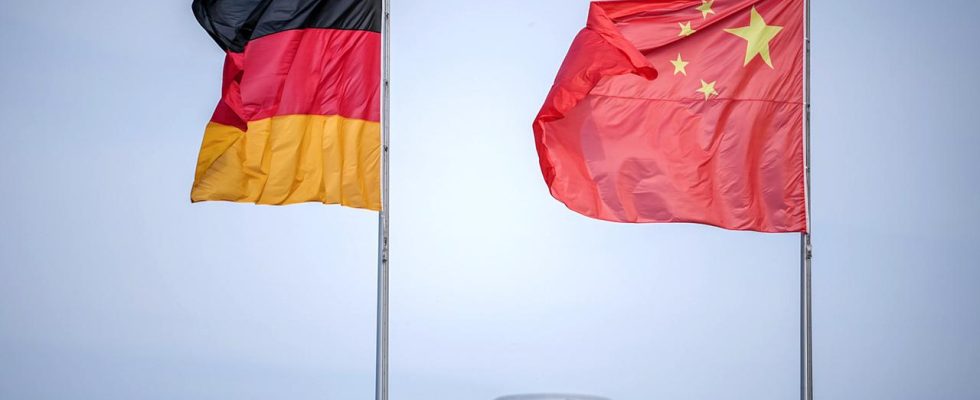After tough negotiations within the traffic light coalition, the cabinet wants to adopt the China strategy today. It is an expression of a balancing act between economic interests and political principles.
The major key questions in the China strategy are clear: How can we succeed in maintaining good relations, taking the interests of German companies into account and at the same time making it clear that this federal government also wants to reduce risks in dealing with China?
Foreign Minister Annalena Baerbock from the Greens and Chancellor Olaf Scholz (SPD) have said so publicly several times. The term de-risking is often used, i.e. risks and dependencies are to be reduced.
More distance in tone
In contrast to the previous governments under Angela Merkel, more distance can now be felt in the tone of voice in the Foreign Office and the Chancellery. This is also reflected in a statement by the German Foreign Minister on the sidelines of the NATO summit in Vilnius. Baerbock first notes very diplomatically that they want to live in peace and freedom with all countries in the world. But at the same time, don’t be naive. Because one-sided dependencies made Germany vulnerable.
Germany wants to be a partner with all countries. “We know that we are also competitors, economic competitors, with many countries around the world. And that we are preparing for the fact that when there are systemic rivalries, we protect our own security, our own resilience.”
The triad “partner, competitor and systemic rival” invented by the EU Commission is now also an integral part of the German government vocabulary when it comes to China. Nevertheless, the Chancellor regularly emphasizes how important good relations with China are.
More exchange agreed
At the German-Chinese government consultations in Berlin in June, Scholz, together with China’s Prime Minister Li Qiang, reaffirmed the great interest in good cooperation on numerous levels. Joint declarations were signed for more exchange in almost all areas, from education and climate protection to energy, technology and transport.
Scholz attached so much importance to precise formulations that he read them from a speech note: “Today we agreed on a climate and transformation dialogue. Together we will accelerate the transformation, pragmatically through dialogue and concrete cooperation. Every ton of CO2, that we save contributes to limiting global warming. Our common goal is to make industrial processes more climate-friendly, to accelerate the energy transition, to promote the switch to climate-friendly mobility, and to strengthen the circular economy.”
find balance
One of the exciting questions surrounding the German government’s China strategy is whether Berlin will reiterate its request to Beijing that China should exert its influence more strongly on Russia. In the Ukraine war, China, as a permanent member of the UN Security Council, has a very special task, Chancellor Scholz noted at the meeting with Li Qiang in June.
Everyone involved is clear: China’s importance in the world is constantly increasing. And Germany must fundamentally clarify how it relates to this. Specifically, how openly does the federal government want to criticize, for example on human rights issues or in relation to Chinese military exercises off the coast of Taiwan? The question of where the balance is between economic interests and political principles is also open.

